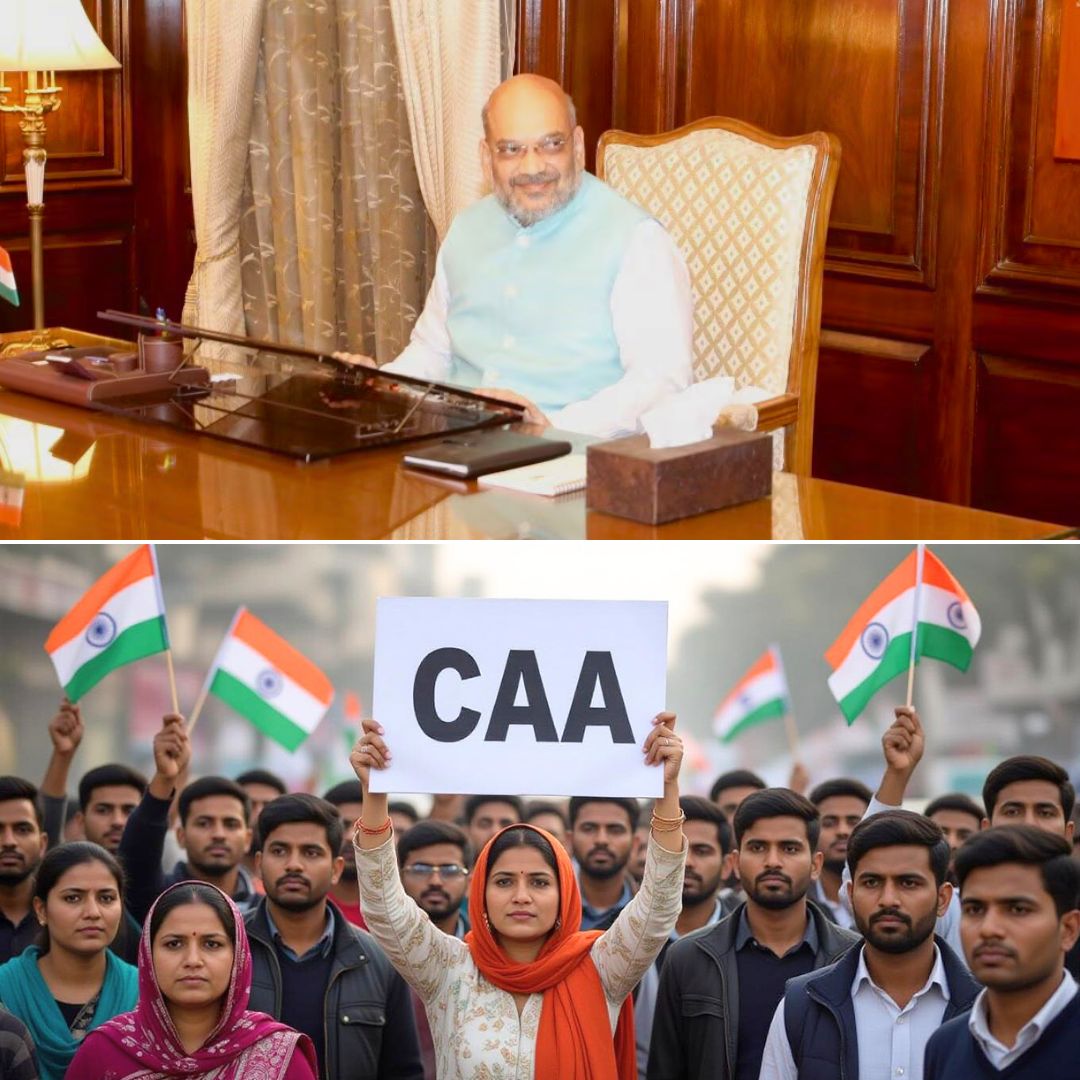The Union Ministry of Home Affairs (MHA) has announced a significant extension of the cut-off date under the Citizenship (Amendment) Act (CAA) to December 31, 2024. This expansion allows non-Muslim minority communities from Afghanistan, Bangladesh, and Pakistan, including Hindus, Sikhs, Buddhists, Jains, Parsis, and Christians, who fled religious persecution and arrived in India until this date, to stay in the country even without valid travel documents. This new order, issued under the recently implemented Immigration and Foreigners Act, 2025, builds upon the original CAA provision, which granted citizenship to these communities arriving before December 31, 2014.
Officials from the Ministry emphasise that the extension recognises the ongoing nature of persecution in the neighbouring countries, highlighting a continued influx of migrants, particularly from Pakistan. An MHA spokesperson said, “Migrants compelled to seek shelter in India due to religious persecution who arrived on or before December 31, 2024, shall be exempted from the requirement of valid passports and visas.” The order applies even to those whose travel documents have expired, providing them a legal refuge and relief from penal actions.
Historical Context and Legal Framework
The Citizenship (Amendment) Act, passed by Parliament in December 2019 and operationalised on March 11, 2024, was designed to fast-track Indian citizenship for six persecuted minority communities escaping religious violence and discrimination in Pakistan, Afghanistan, and Bangladesh. The CAA marked a departure from existing citizenship laws by focusing on non-Muslim refugees, a decision that triggered nationwide debates over its secular implications.
Since its enactment, the CAA faced multiple legal challenges and led to protests in several states. The act’s original 2014 cut-off left many recent refugees in limbo, prompting persistent demands, including appeals by refugee associations, to extend the deadline. The latest MHA order answers these calls, reflecting the government’s recognition of changing realities, including the hardships faced by refugee groups such as Afghan Sikhs who sought shelter following the Taliban’s return to power in 2021.
Political and Social Implications
The extension comes at a politically sensitive time with several state elections approaching in regions historically affected by migration and refugee issues, such as Assam, West Bengal, and Tripura. Political analysts interpret the timing as a strategic move reaffirming the government’s commitment to providing shelter to persecuted minorities, a theme frequently highlighted in the ruling party’s discourse.
Critics argue the law and its extensions could deepen social divides by excluding Muslim refugees from similar protections. The government, however, maintains that the CAA and related policies uphold India’s long-standing humanitarian tradition of welcoming persecuted minorities. This extension signals the government’s intent to operationalise the law fully while addressing some humanitarian concerns.
The Logical Indian’s Perspective
The extension of the CAA cut-off provides much-needed relief to many vulnerable minorities, offering them recognition and protection under Indian law. It reflects India’s enduring role as a refuge for the persecuted but also underlines the complex realities of citizenship, identity, and inclusion in a diverse, pluralistic society. While humanitarian concerns have been addressed for many, questions remain about ensuring equal treatment for all refugees irrespective of religion or nationality.
The Logical Indian calls for inclusive, compassionate policies that embrace diversity and strengthen India’s secular ethos without discrimination. It is essential to foster dialogue around human rights, empathy, and social harmony to bridge divides and build a truly pluralistic society.













